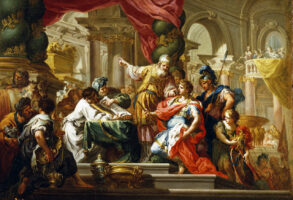
Published January 6, 2020
In an extraordinary speech a few months ago at the University of Notre Dame, U.S. Attorney General William Barr bluntly addressed the deep malaise affecting large swaths of contemporary American society. Describing a breakdown of epic proportions, he adduced such now-familiar indices as the high incidence of broken families, the soaring suicide rates, the record levels of depression, the army of “angry and alienated young males,” and of course the ever more widespread addiction to opioids and other drugs. American culture, he declared, is descending into “chaos.”
Speaking at a Catholic university, to an audience that included a large number of religious Christians, Barr characterized this grim reality as both a disaster for untold numbers of American citizens and a genuine crisis for American society at large. What was responsible for it? What had changed?
The founding proposition of the American experiment was that biblical morality—our nation’s bedrock Judeo-Christian inheritance—could form and sustain a citizenry suited for modern liberty and self-government. That proposition would be tested over the ensuing centuries by multiple vicissitudes and even by civil war, yet through it all the American experience would continue to validate the Founders’ faith in the “moral and religious” people for whom alone, as John Adams insisted, “our Constitution was made.”
Click here to read the rest of this piece at the Mosaic website.
Eric Cohen is executive director of the Tikvah Fund. He is the author of In the Shadow of Progress: Being Human in the Age of Technology (2008), editor-at-large of the New Atlantis, and a contributor to numerous publications.








